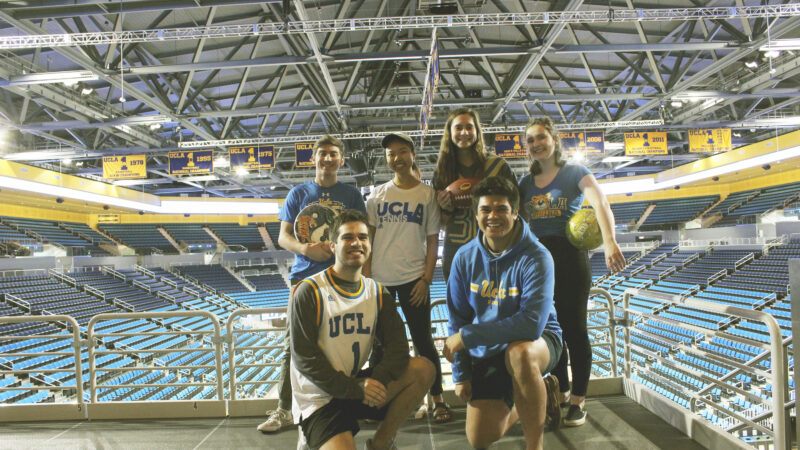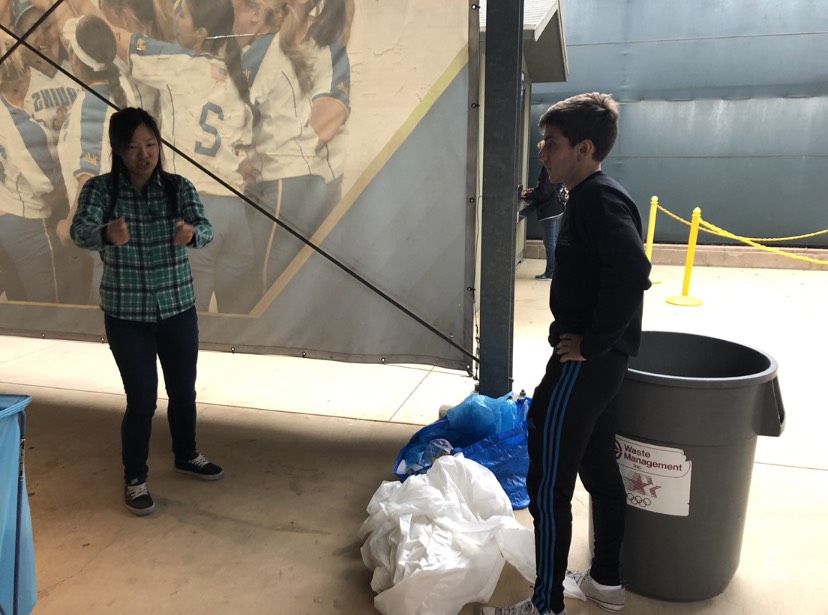
Blog |
Green Games Blog Post: May 17, 2019
Contemplating Final Sustainability Templates
By: Zachary Alter, Jacob Gerigk, Sarina Levin, Jonah Eisen, Amber Lam, and Kate Minden.
The Green Games Team has been hard at work in researching and developing best-fit templates for the facilities which host sporting events. Our team has run another audit this time at the Easton Softball Stadium to assess the facility’s ability to divert waste and how the consumer responds to signage posted above the different waste bins. Our audit included two sets of only labeled signs, two sets of labeled and pictured signs, and two sets with no signage that acted as the control group. Given that it was a smaller game, we sorted through all trash bags and found that when comparing the two experimental groups, only the labeled recycling had a higher rate of correctly sorted waste — both compost and landfill waste had higher diversions rates with labeled and pictured stations. Overall, people sorted their trash better when stations had both labels and pictures, confirming our hypothesis that showing people what is considered recycling, composting, etc., will result in them sorting their trash more accurately. However, as we discovered when conducting our audit, the softball stadium did not have separate recycling and composting receptacles, essentially making the point of sorting waste at events moot. This audit not only helped our team gain insight into waste patterns at different sporting events, but exemplified how many facilities around our campus are under-equipped for waste sorting.
The upcoming weeks are going to be focused on finalizing the facility-specific green event guides for sporting events as well as a development of transferable information so that our progress does not stagnate after the end of the quarter. Templates will be created for Spieker Aquatics Center, Pauley Pavilion, and Easton Stadium. Our efforts within the athletics department have branched from only establishing templates to engaging the student-athletes that also share our ambitions for their sports. This entails the development of a sustainability position within the athletics operations and documentation of how to run audits for the student-athlete group that is targeting sustainability within practices. This position would have more direct access to the student-athletes as well as the coaches in the athletics department. The student-athlete of this position would be more knowledgeable about how internal practices and sporting events run, an area where we are less familiar with.
As we are nearing the end of the second SAR quarter, we plan to complete our templates and solidify and educate the officer of the position within the student-athlete board of the sustainable practices we have compiled and believe to be effective. Our main objective, as we have had so many the past five months, is to start the conversation about sustainable sports — because who said we can’t be champions of the Earth, too?

